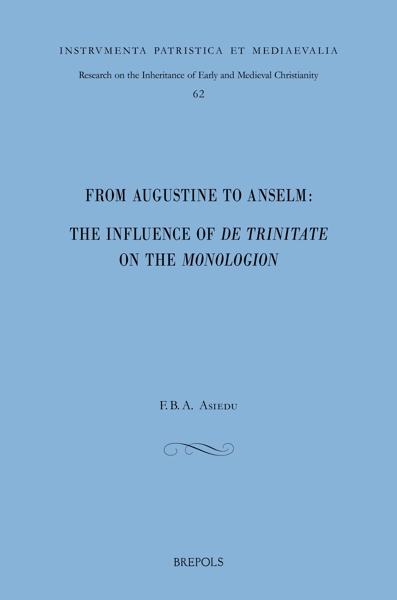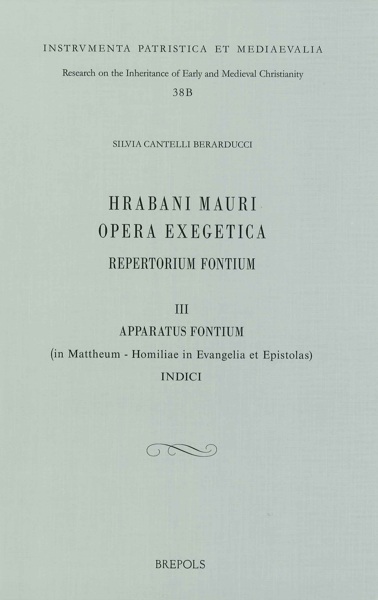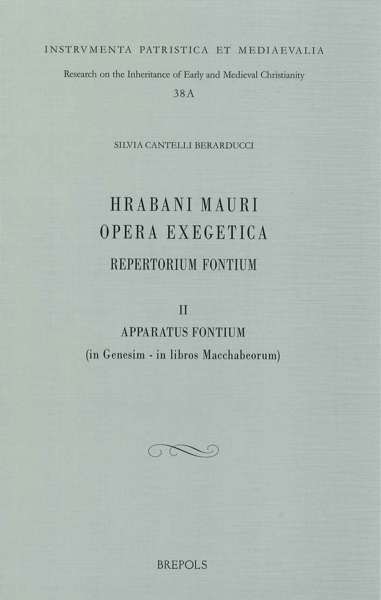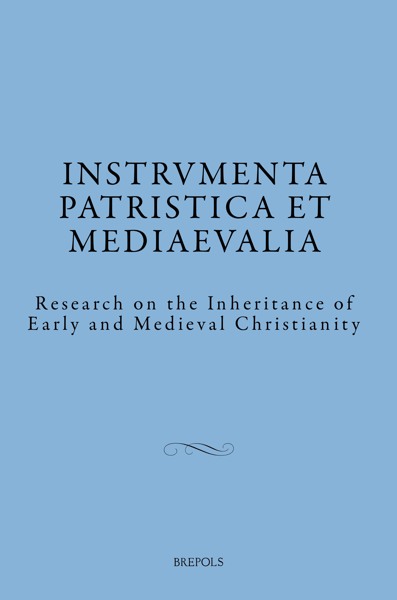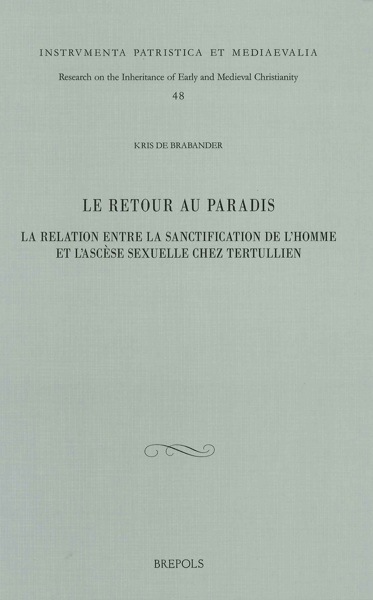
From Augustine to Anselm: The Influence of De trinitate on the Monologion
F.B.A. Asiedu
- Pages: 497 p.
- Size:160 x 240 mm
- Language(s):English
- Publication Year:2012
- € 125,00 EXCL. VAT RETAIL PRICE
- ISBN: 978-2-503-54086-3
- Hardback
- Available
- € 125,00 EXCL. VAT RETAIL PRICE
- ISBN: 978-2-503-57147-8
- E-book
- Available
"[L'auteur] nous offre ici un ouvrage riche et précieux, qui propose une réévaluation, d'une part de la dépendance du Monologion à l'égard du De trin., d'autre part de l'importance intrinsèque de Monologion dans l'histoire de la pensée médiévale." (J. L., dans: Revue d'Études Augustiniennes et Patristiques, 59/2, 2013, p. 499-500)
Anselm (1033-1109) described the Monologion, his first major theological work, as a model meditation on the divine essence; and he enjoined his potential critics to read Augustine’s De trinitate diligently and then judge the Monologion by it. In following Anselm’s admonition, I have paid particular attention to Anselm’s claims about the persuasiveness of his arguments, and probed the cogency of some of the many arguments that make up the Monologion. The result is something like a critical companion to the Monologion. It is not meant to replace an actual reading of the Monologion, which is an experience worth having, since no interpretation or paraphrase can capture the feeling of wading through Anselm’s analytic arguments. And I have resisted the common tendency of reading the Monologion merely as a prelude to its more evocative sequel, the Proslogion. Because Anselm’s arguments attend to fundamental themes in philosophical theology, this book also provides comment on the state of early medieval philosophical theology and Anselm’s unique contribution to it. The book has implications not only for our understanding of Anselm’s thought and its relation to ancient and early medieval Christian tradition, but also for the ways in which theologians and philosophers since Anselm have appropriated his ideas. Since a good deal of that appropriation often overlooks the Monologion, this study should help towards a re-orientation to Anselm and his relevance to contemporary debates about theological method in general and analytic theology in particular.
Dr. F. B. A. Asiedu is a visiting scholar at Emory University (Atlanta, GA). His research and teaching cover a wide area including ancient and medieval Christianity, intellectual history, philosophical hermeneutics, and social and political thought.
Preface and Acknowledgements
Abbreviations
Introduction
Part One: Approaching the Monologion
1. The Monologion and Augustine’s De trinitate
1. Introduction
2. The Monologion: Between Lanfranc and Augustine
3. The Content and the Form: Beyond Monastic Lectio
4. Augustine’s De trinitate and Medieval Theological Formation
5. De trinitate 15 and the Method of the Monologion
6. Conclusion
2. Anselm’s Greek Formula: A Pseudo-Augustinian Gloss
1. Introduction
2. Anselm, Boethius, and Individuation
3. The Monologion, Letter 83, and the Epistola de incarnatione Verbi
4. Persons and Substances: Three What?
5. A Common Nature and the Problem of Individuation
6. Augustinus Testatur: Letter 204
7. Conclusion: Anselm’s Pseudo-Augustine
Part Two: A Reading of the Monologion
3. Anselm’s Three Ways
1. Introduction
2. An Invitation to Inquiry: Reason as Guide
3. The Good: Beyond Utility and Intrinsic Worth
4. The Nature of Existence and the Degrees of Dignity
5. Excursus: Anselm’s Three Ways and Aquinas’s Five Ways
6. Conclusion
4. De nihilo nihil: The Craftsman and the Supreme Utterance
1. Introduction
2. Plato, Augustine, and Anselm’s “Creator”
3. Creatio ex nihilo and the Craftsman
4. De nihilo nihil and the Semantics of “Nothing”
5. The Supreme Nature and its Utterance
6. Concepts and Primary Substances
7. Conclusion
5. Creator Spiritus Simpliciter
1. Introduction
2. On Predication: Substances and Relations
3. Truth, Eternity, and Timelessness
4. The Ratio of Time and Place
5. Boethius, Anselm, and Eternity
6. Spiritus Simpliciter
7. Conclusion
6. Trinity and Mind
1. Introduction
2. Trinitarian Simplicity: To Speak of the Ineffable
3. Trinity, Imperfection, and the Human Mind
4. Trinity and Reason
5. Imitation, Dissimilarity, and Equivocation
6. The Mind and Its Utterance
7. Sex, Gender, and Trinitarian Difference
8. A Common Nature: Reconsiderations
9. Anselm’s Trinitarian Analogies
10. Conclusion
7. The Criterion of Rationality: On Faith, the Ineffable, and the Love of the Good
1. Introduction
2. De trinitate Book 13: The Book of Faith
3. Anselm’s Defense of His Method: A Preliminary Assessment
4. Language, the Limits of Reason, and the Understanding of Faith
5. The Mind, the Soul, and the Criterion of Rationality
6. Love, the Will, and the Indifferent Soul
7. On Naming God: The Trinitarian Good
8. Conclusion
Conclusion
Epilogue
Bibliography
Indexes (Ancient & Medieval Authors, Modern Authors, Places)
